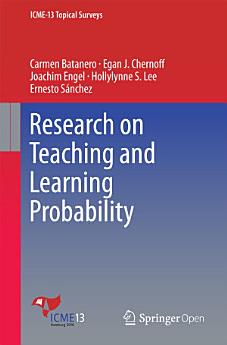Research on Teaching and Learning Probability
jul 2016 · Springer
4,0star
5 reseñasreport
eBook
33
Páginas
reportLas valoraciones y las reseñas no se verifican. Más información
Información sobre este eBook
This book summarizes the vast amount of research related to teaching and learning probability that has been conducted for more than 50 years in a variety of disciplines. It begins with a synthesis of the most important probability interpretations throughout history: intuitive, classical, frequentist, subjective, logical propensity and axiomatic views. It discusses their possible applications, philosophical problems, as well as their potential and the level of interest they enjoy at different educational levels. Next, the book describes the main features of probabilistic thinking and reasoning, including the contrast to classical logic, probability language features, the role of intuitions, as well as paradoxes and the relevance of modeling. It presents an analysis of the differences between conditioning and causation, the variability expression in data as a sum of random and causal variations, as well as those of probabilistic versus statistical thinking. This is followed by an analysis of probability’s role and main presence in school curricula and an outline of the central expectations in recent curricular guidelines at the primary, secondary and high school level in several countries. This book classifies and discusses in detail the three different research periods on students’ and people’s intuitions and difficulties concerning probability: early research focused on cognitive development, a period of heuristics and biases programs, and the current period marked by a multitude of foci, approaches and theoretical frameworks.
Valoraciones y reseñas
4,0
5 reseñas
Valorar este eBook
Danos tu opinión.
Información sobre cómo leer
Smartphones y tablets
Instala la aplicación Google Play Libros para Android y iPad/iPhone. Se sincroniza automáticamente con tu cuenta y te permite leer contenido online o sin conexión estés donde estés.
Ordenadores portátiles y de escritorio
Puedes usar el navegador web del ordenador para escuchar audiolibros que hayas comprado en Google Play.
eReaders y otros dispositivos
Para leer en dispositivos de tinta electrónica, como los lectores de libros electrónicos de Kobo, es necesario descargar un archivo y transferirlo al dispositivo. Sigue las instrucciones detalladas del Centro de Ayuda para transferir archivos a lectores de libros electrónicos compatibles.




